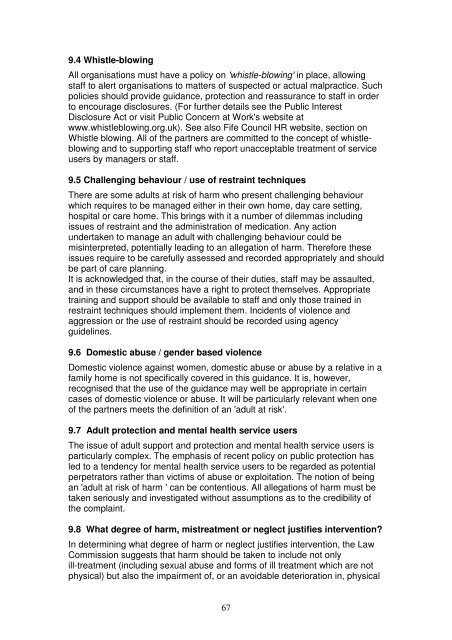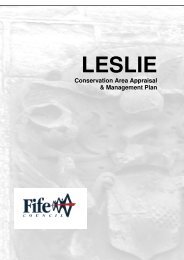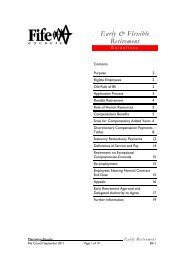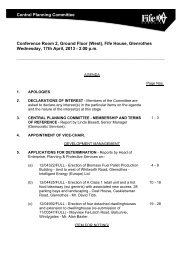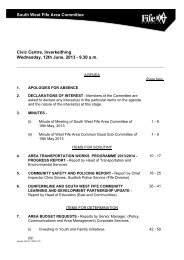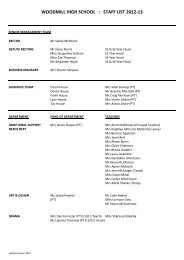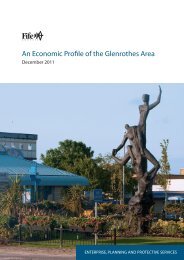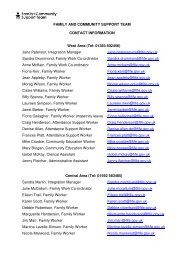Fife Multi-Agency Adult Protection Guidance - Home Page
Fife Multi-Agency Adult Protection Guidance - Home Page
Fife Multi-Agency Adult Protection Guidance - Home Page
You also want an ePaper? Increase the reach of your titles
YUMPU automatically turns print PDFs into web optimized ePapers that Google loves.
9.4 Whistle-blowingAll organisations must have a policy on 'whistle-blowing' in place, allowingstaff to alert organisations to matters of suspected or actual malpractice. Suchpolicies should provide guidance, protection and reassurance to staff in orderto encourage disclosures. (For further details see the Public InterestDisclosure Act or visit Public Concern at Work's website atwww.whistleblowing.org.uk). See also <strong>Fife</strong> Council HR website, section onWhistle blowing. All of the partners are committed to the concept of whistleblowingand to supporting staff who report unacceptable treatment of serviceusers by managers or staff.9.5 Challenging behaviour / use of restraint techniquesThere are some adults at risk of harm who present challenging behaviourwhich requires to be managed either in their own home, day care setting,hospital or care home. This brings with it a number of dilemmas includingissues of restraint and the administration of medication. Any actionundertaken to manage an adult with challenging behaviour could bemisinterpreted, potentially leading to an allegation of harm. Therefore theseissues require to be carefully assessed and recorded appropriately and shouldbe part of care planning.It is acknowledged that, in the course of their duties, staff may be assaulted,and in these circumstances have a right to protect themselves. Appropriatetraining and support should be available to staff and only those trained inrestraint techniques should implement them. Incidents of violence andaggression or the use of restraint should be recorded using agencyguidelines.9.6 Domestic abuse / gender based violenceDomestic violence against women, domestic abuse or abuse by a relative in afamily home is not specifically covered in this guidance. It is, however,recognised that the use of the guidance may well be appropriate in certaincases of domestic violence or abuse. It will be particularly relevant when oneof the partners meets the definition of an 'adult at risk'.9.7 <strong>Adult</strong> protection and mental health service usersThe issue of adult support and protection and mental health service users isparticularly complex. The emphasis of recent policy on public protection hasled to a tendency for mental health service users to be regarded as potentialperpetrators rather than victims of abuse or exploitation. The notion of beingan 'adult at risk of harm ' can be contentious. All allegations of harm must betaken seriously and investigated without assumptions as to the credibility ofthe complaint.9.8 What degree of harm, mistreatment or neglect justifies intervention?In determining what degree of harm or neglect justifies intervention, the LawCommission suggests that harm should be taken to include not onlyill-treatment (including sexual abuse and forms of ill treatment which are notphysical) but also the impairment of, or an avoidable deterioration in, physical67


